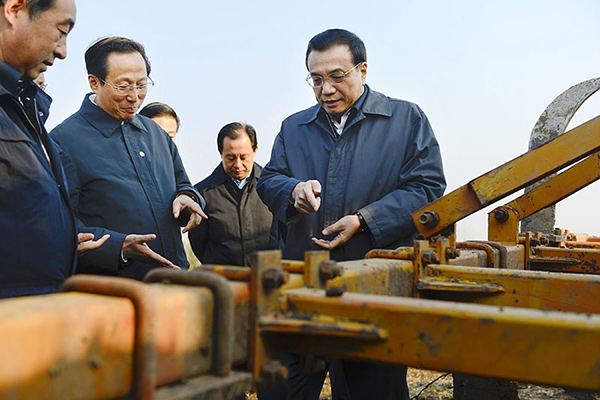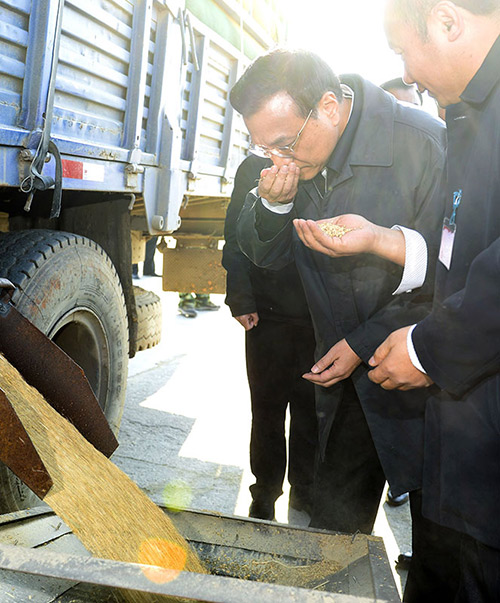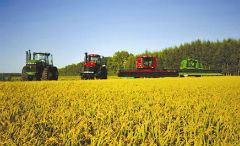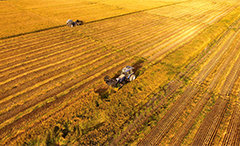Premier Li urges new-type agricultural businesses to rely more on market
2017-12-20
english.gov.cn
 Premier Li Keqiang inspects the trial reform of modern agriculture at a farm in Fuyuan county, Heilongjiang province, on Nov 5, 2013.[Photo/China News Service]
Premier Li Keqiang inspects the trial reform of modern agriculture at a farm in Fuyuan county, Heilongjiang province, on Nov 5, 2013.[Photo/China News Service]
The development of new-type agricultural businesses should rely more on reform and the market rather than government support such as demonstration bases, Premier Li Keqiang said at the State Council executive meeting on Dec 13.
The meeting clarified some next-step measures to grow new-type agricultural businesses.
Cultivating new-type agricultural businesses and promoting modern agriculture is an important part of revitalizing rural areas, Premier Li said.
He has said many times that joint stock partnerships, family farms and professional cooperatives are the main trends in modern agriculture. The government should improve support policies to cultivate new-type professional farmers and increase their income, he said.
It was decided at the meeting that the project to cultivate new types of business entities, support businesses featuring industrial integration, diversified operation and Internet Plus, and carry out training projects for professional farmers and rural entrepreneurs would be implemented.
 Premier Li inspects grain procurement and storage in Fuyuan county, Heilongjiang province, Nov 4, 2013.[Photo/China News Service]
Premier Li inspects grain procurement and storage in Fuyuan county, Heilongjiang province, Nov 4, 2013.[Photo/China News Service]
Premier Li urged efforts to address problems facing new types of agricultural business entities through policies in finance, taxes, land use for facilities and electricity prices.
The meeting also decided to intensify support for businesses in farm products processing, and offer subsidies for production services.
Innovating finance services was stressed, which includes facilities being pledged as security for loans, fundraising through production orders, and rental services for agricultural equipment.
The meeting also encouraged provincial agricultural loan companies to cover rural counties, with more than 70 percent of credit loans allocated to new agricultural business entities, and urged studying guidelines for development of agricultural insurance.




